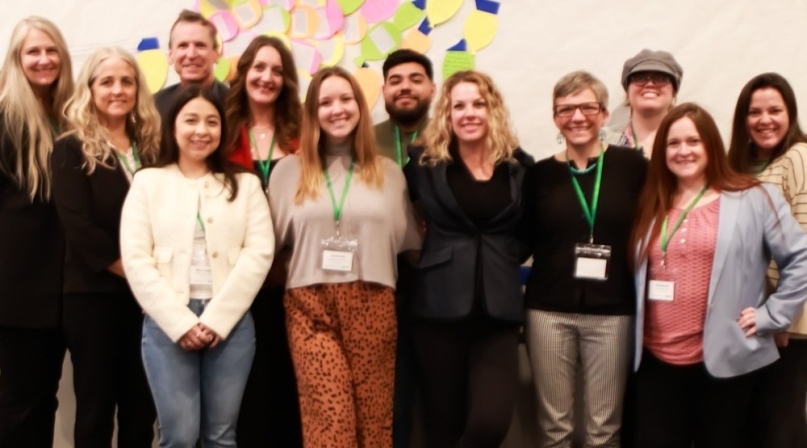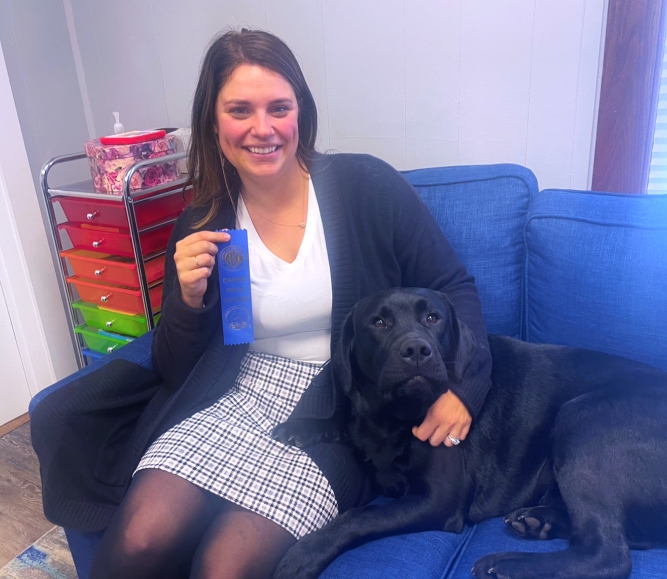Summit encourages optimism despite childhood trauma

Key Takeaways
On the short timeline in which children view the world, trauma has a long half-life.
The setback and life-changing effects of a wildfire, a flood or an abusive family member can seem hard, if not impossible to recover from, largely because they’ve never done it before. And sometimes that trauma can mold a person’s life, and despite a growing movement to fixate on those traumas, maybe they don’t have to.
In Mendocino County, Calif. one of the top-scoring counties in the state for youths experiencing adverse childhood experiences (ACES), clinicians are trying to fight the assumption that a child’s road is marked by “trauma potholes.”
“In the last five years, we’ve done a lot of training that has focused on ACES and understanding trauma, understanding what it looks like and how damaging it can be,” said Megan Carson, community education manager for First 5 Mendocino, a county-related organization supporting children ages 0-5. “What we also started to realize was that people were getting hung up on that and losing hope. They were feeling like they have all this trauma but not a lot of hope for moving beyond it.”
First 5 Mendocino brought 42 different agencies that support children’s wellbeing together for its annual State of the Child summit in March, where they heard from speakers who stressed that it’s possible for children who encountered ACES to grow beyond those experiences.
“We don't want to dismiss the ACES scores or the trauma impacts — but talk about ‘What can we pull from that? Or how can we grow?’ and learn from it instead,” Carson said.
“Our main goal is helping people understand ‘Yes, we’ve gone through a lot of fires and natural disasters, we also live in a really rural place that has higher rates of poverty and things like that, but we have a really tight-knit community, where neighbors care about us and we have lots of resources and agencies that are trying to fill in the gaps where we’re lacking the other resources.’”
Maureen Mulheren, a Mendocino County supervisor and a commissioner for First 5 Mendocino, said efforts like the State of the Child are crucial in getting human service organizations in her rural county on the same page, and for her own education.
“I think that as an elected official, it’s important for us to understand the work that people are doing in our communities and when we’re talking about especially trauma-informed care,” she said.
“There are so many nuances and so much has changed over time, that it’s really important that elected officials try to keep up-to-date on research and advances. Things like the research and the new information that’s coming, about the best way to provide that care, because it has changed and evolved rapidly.”
Four speakers headlined the summit:
• Tina Bryson is the author of “The Power of Showing Up,” about creating healthy, secure connections between parents and children. “That can also be applicable in the workplace, and helping families create stronger connections and healthier attachments with the children that they care for,” Megan Carson said.
• Georgie Wisen-Vincent is the director of the PlayStrong Institute, which employs play therapy to engage kids and play in a way that helps them process their traumas or traumatic paths and understand how to move beyond them.
• MaryCatherine McDonald is the author of “Unbroken: The Trauma Response Is Never Wrong.” “It really just was very eye-opening about the different ways in which people are raised and how we then move into adulthood and interact with each other,” Mulheren said. “As a policymaker and as a leader in my community, when I’m working with all kinds of different personalities, trying to pause and think about where people might be coming from is really important.”
• Gaelin Elmore is a former foster youth who is now a professional speaker and nonprofit who briefly played in the National Football League. “He talked about the key figures in his life who helped give him a sense of hope and a sense of belonging, even if his family was struggling in different ways, knowing there were other people that were there to kind of catch him and notice him and make sure that he wasn’t falling through the cracks,” Carson said.
Mulheren said the programming galvanized the attendees to work together.
“Breaking the generational poverty cycle is huge and I think that our community, so many small rural communities, often have to rely on volunteers for things such as literally coaching soccer games,” she said.
“I always say that to those coaches, those team moms, that you can support children just by merely showing up for them.”
Attendees included county social services personnel, public health officials, court-appointed special advocates, family resource center personnel, preschool teachers, school district counselors, therapists, foster agencies and representatives from the county’s 11 tribes.
Carson said that although the work around children who have experienced trauma can be grueling, she hopes that both the spirit and the practical knowledge imparted in the programming invigorated them.
“I know that it can really burn people out quickly when they have new ideas coming in and new systems to implement, new ways of doing things that can really cause a lot of stress and frustration and burnout,” she said. “Our intent is obviously not to do that and so we always try to present our partners and professionals with information and ideas that will help lift them up and help make their jobs easier.”
It's a lesson Mulheren has tried to live since the summit.
“One thing that I feel that has really been a talking point for me this year is that kids have the opportunity to become whomever they want,” Mulheren said. “Certainly, there are a lot of barriers for some kids, but when the community shows up, it supports them, and tries to understand where they’re coming from. I think they have a lot more hope and opportunity.”
Related News

County Countdown – Dec. 15, 2025
Every other week, NACo's County Countdown reviews top federal policy advocacy items with an eye towards counties and the intergovernmental partnership.
Stretching small opioid settlement allocations helps funding do more
States and localities are set to receive $56 billion in opioid settlement dollars over an 18-year period, but not every county that receives settlement funding will get enough to build out infrastructure.
County News
Pennsylvania county offers children trauma-informed care


